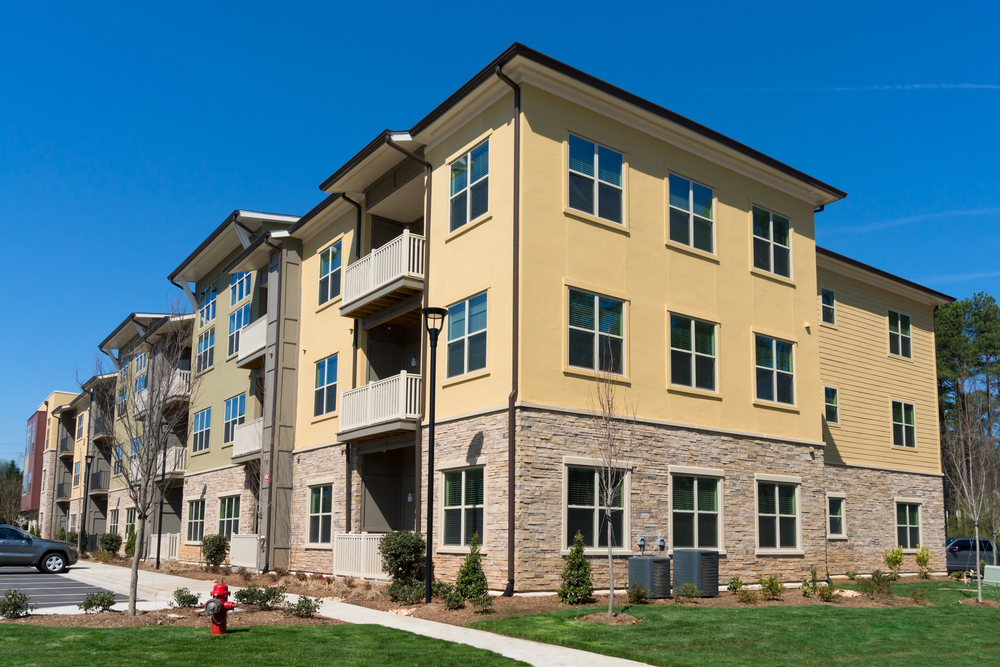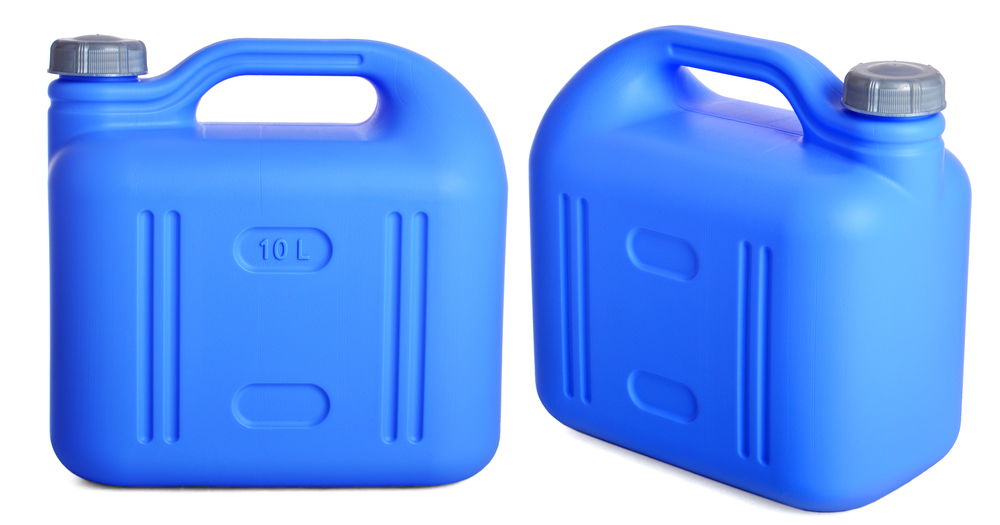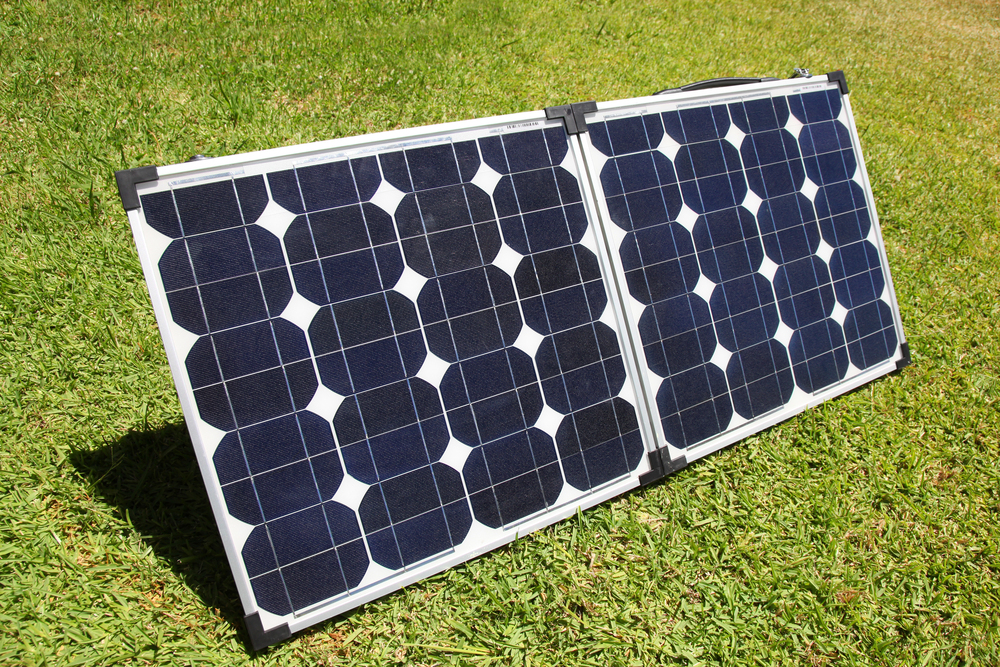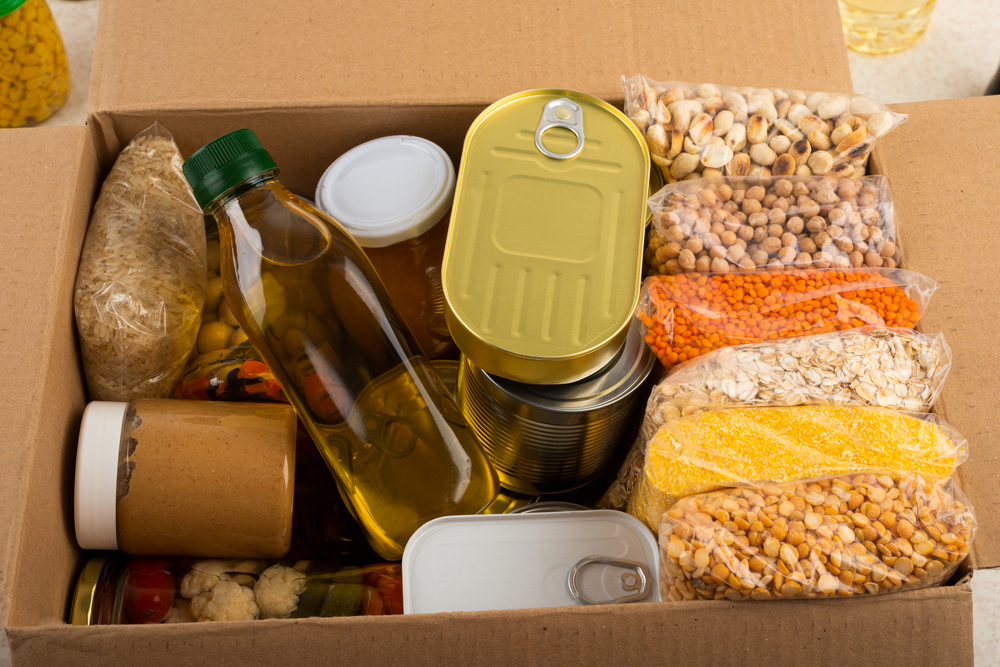The conventional wisdom in prepper communities is that the only way to survive a SHTF scenario is to live completely off-grid, and avoid living in apartment or mobile home.
But how many of us actually live like that right now, or could afford to purchase a location like that, and also have the necessary skills to live like they did back in Little House In The Prairie times? Very few.
An estimated 39 to 44 million people live in apartments. An estimated 20 million live in mobile homes. In both cases, you won’t be able to grow crops or raise livestock and you will be entirely dependent on the grid for your water supply.
In fact, a 2019 study estimates that there are only about 180,000 to 750,000 people in the US who actually live off grid. Yes, that’s a wide range – it’s hard to get exact numbers, because people who live off grid often don’t announce the fact and may deliberately make themselves hard to track down. (Understandably!) Either way, though, that’s a tiny percentage of the estimated 333.3 million people in the USA.
So should you give up right now if you live in an apartment? Should you just accept defeat and get ready to die within weeks, if SHTF? Of course not! There is plenty that you can do to increase your chances of survival no matter where you live.
And that’s why I’m about to give you some essential prepping tips for apartment dwellers and mobile home dwellers.
Disclosure: I get commissions for purchases made through links in this post.
First Steps

The first steps for any prepper is to make sure that they have enough food and water for themselves and their families to survive the immediate aftermath of an emergency scenario. You need to calculate how much each person in your family eats. Let’s say you have a family of four. That’s 12 meals a day. Multiply that by 30, and you need 360 meals for one month. Ideally, you’d store several months worth of food.
Next, you need a minimum of a gallon of water per day per person, so for that family of 4, that is 4 gallons of water a day which is 120 gallons for a month. This long-term water storage container holds 55 gallons, so you’d want at least three of them to provide you with enough drinking water for a month. That is a bare minimum amount of water, and doesn’t cover washing your clothes, or any pets that you might have.
Another thing that you can do, if you have any advance notice that you may be at risk of losing power, is to buy a waterbob, which is a plastic liner for your bathtub, and fill it up with water. You would also want to fill up every container in the house with water; bowls, cups, vases, jugs, anything that holds water.
Want To Cook Food In Your Apartment? Think Again.
Wait, what? Why can’t you cook your food if you’re in an an apartment and there’s a permanent, grid-down, SHTF situation? Because cooking smells travel, and they will drift throughout your entire building, and if the grid is down and everyone is starving, you don’t want to advertise that you have food. If you lived in a house and had some distance from your neighbors, it might be safe to use indoor cooking stoves to cook your food, but in an apartment building, you could be putting yourself in serious danger.
So what kind of long term food should you get if you live in an apartment? Canned food that you can eat unheated, and MRE-type meals which don’t need to be cooked, are your safest bet. Make sure you have several non-electric can openers! Can openers tend to break with heavy use. In a SHTF scenario, you need backups for your backups.
It’s still a good idea to have portable camping stoves, fuel and matches, though, because you are going to need to bug out eventually and they might come in handy.
Other Essential Supplies For Apartment Dwellers
1.) A first aid kit, and enough medication to last each family member at least a few months, will be vital in an SHTF.
2.) You should build a bug-out bag for each family member as well, in case you need to evacuate. Yes, even your kids should have bug-out bags. And if it is a permanent grid down situation and you live in an apartment, you are going to need to head out eventually, unless your neighborhood gets together and starts growing food and distributing it amongst yourselves, and also figures out a way to dispose of waste, and finds a source of clean water.
3.) You will need pet food and water and leashes or wheeled carriers for your pets.
4.) Entertainment – playing cards, sewing supplies, knitting supplies, board games, chess, checkers, battery-operated DVD players, books, coloring supplies for your kids. It’s going to be harder to convince everyone to stay put and stay safe if they have literally nothing to do and are crawling the walls with boredom.
5.) Weapons, if legal. If not, use your discretion. My discretion says that my family comes first and we have the right to defend ourselves.
6.) Hygiene supplies, like wipes, because with no power, you won’t be bathing.
7.) Toilet buckets. And bucket liners, and poo gel or kitty litter to help with the smell. When the power goes out, and water stops running, you won’t be able to flush your toilet. People who are off-grid can have outhouses or composting toilets or just go in the woods. If you’re hunkering down in an apartment, you won’t have that luxury. If things get desperate, you could dump buckets of waste out your window like they did in ancient times up through the Victorian era. At that point, everybody else would be doing the same thing, so when the time comes to bug out – watch your step. Waste will be everywhere.
8.) Batteries, including rechargeable batteries, and a hand-crank generator to recharge them.
9.) Hand-crank radios – several of them, in case one breaks. They’ll be vital for staying on top of news developments.
10.) Lighting sources – Hand-crank flashlights, candles, matches, oil lamps, and camping lanterns, so you’re not stumbling around in the dark. Be very careful with candles and oil lamps, they are an incredible fire hazard.
11.) At least one small camping tent, if you live in an area that gets cold, and sleeping bags, and sleeping bag pads. You and several family members can sleep in a tent at night when temperatures plummet, and your shared body heat in the small space will help keep you warm.
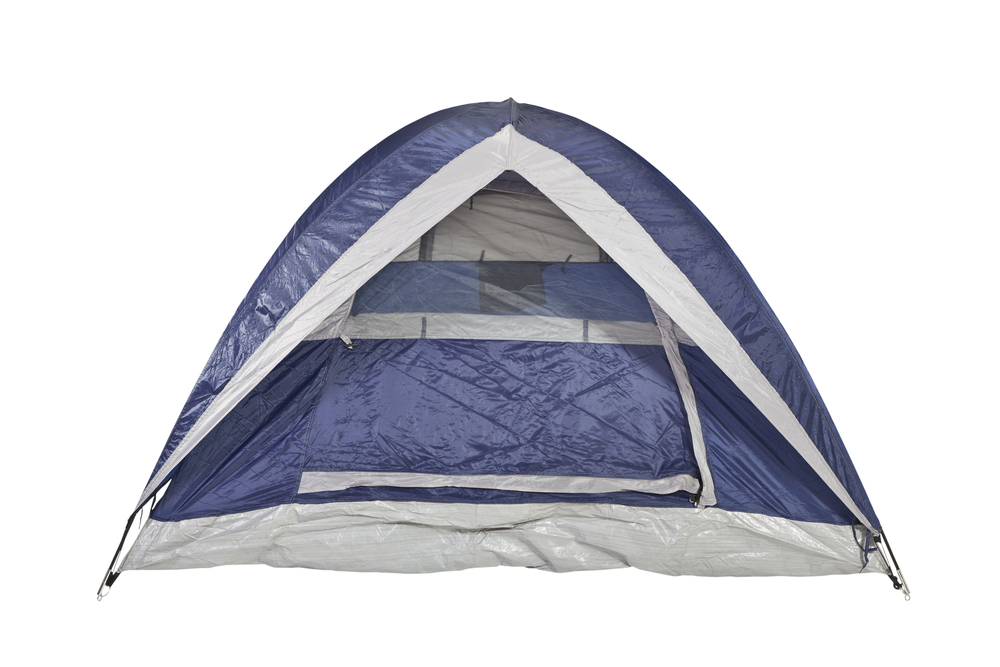
Storage
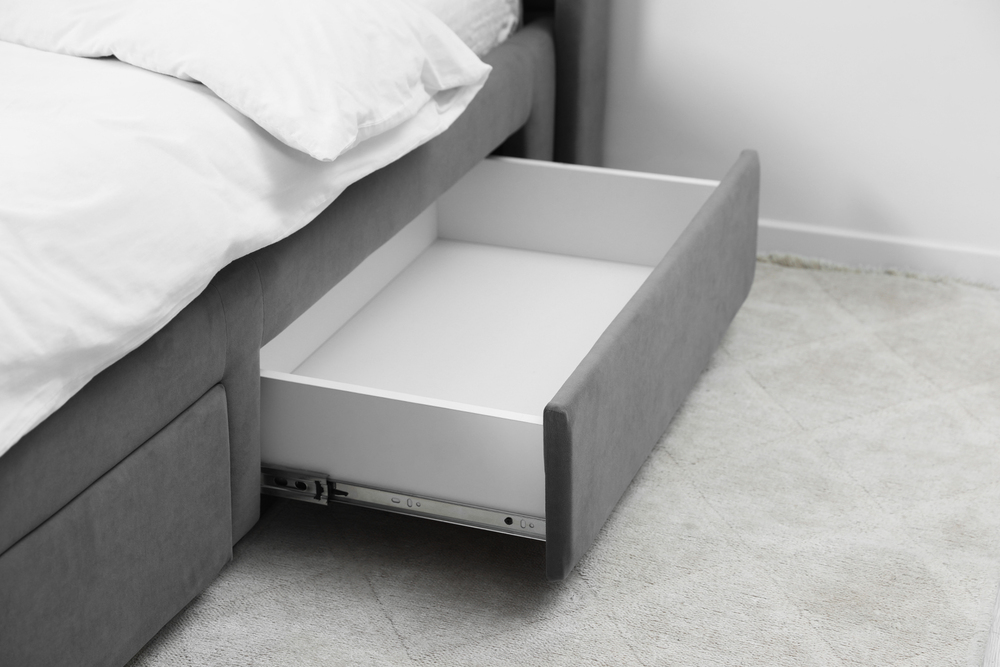
Store your food in airtight containers which are impervious to insects and rodents.
It goes without saying that apartments and mobile homes often don’t have a lot of storage space, so you’re going to have to get creative. Buy drawers for underneath every bed, or just shove your containers under the beds. Fill your closets to the very tippy-top. Put containers of supplies under your sofa.
Instead of a coffee table, you can have boxes or containers of supplies, put a table-top or sheet of plywood on top if it, and cover it with a table-cloth. You can do the same for end-tables.
Declutter, and be ruthless about it. If your priority is prepping, and you live in a small space, you may have to let some items go.
Some more storage ideas:
Furniture with Storage: Consider furniture that doubles as storage, like ottomans with hidden compartments or beds with built-in drawers.
Utility Carts: These can be wheeled into a closet or tucked away in a corner, providing an organized way to keep supplies accessible.
Over-the-Door Organizers: These are great for small items like first aid supplies, tools, or even non-perishable food items.
Pantry Space: If you have a pantry, optimize it by using stackable containers and organizing items by category.
Behind Doors: Use the back of closet or pantry doors to hang racks.
Under-Sink Cabinets: Store cleaning supplies, tools, or even extra food in these often-overlooked spaces.
Safety And Security
Keep Your Preps Secret

One of the first rules of prep club is, nobody talks about prep club. This is true whether you live in an apartment or a house.
Don’t tell anyone that you are prepping, especially not neighbors. Not even friends. If the supply chain is destroyed and weeks pass, and your friends’ children are starving, and they know you have months worth of food and water in your apartment, then they are going to put their family’s needs before the friendship.
You do not want to advertise the fact that you have food, water, batteries, medicine, and other valuables, to people who are desperate, or who are just thugs who will take advantage of a breakdown in law and order.
If you are a prepper and live in an apartment, I would strongly advise against inviting people over to your place, because they are going to see your supplies. Most apartments are not large enough to hide several months worth of food and water. And when times get desperate, if you’ve had visitors to your apartment, they will remember that you have prepping supplies.
You shouldn’t let people in your apartment building see you carry in dehydrated food or other prepper supplies, either. You can disguise your prepping supplies by putting them in regular shopping bags or a suitcase.
Discourage Break-Ins
- Locks: If you are allowed to put your own, additional lock on your door, you should do so. Get a deadbolt. The apartment door frame may not be that strong, so you should also get a strike plate. The deadbolt will slide into the metal strike plate when turned, rather than an old wooden frame.
- If you are allowed to replace the door in your apartment (unlikely) and can afford it, install a secure metal door.
- If you’re not allowed to replace the door with a stronger one, you may be able to at least replace the doorknob and hinges.
- Door Jam Bar: Use a door jam bar on all entry-way doors.
- Replace the hinges on your door with security hinges and replace the screws with four inch long screws. Most door screws are very short, which makes it easier to kick in the door. Again, you may need to ask your landlord for permission to do this.
- Get shatterproof security film. It is also darkened, so you can see out but people can’t see in. Is it completely shatterproof? No, but it will slow an intruder down so in most cases they wouldn’t be able to instantly enter your apartment or home, and you’d have enough warning to get access to weapons. It might also discourage them once they realize they can’t break in easily. It will also prevent glass from flying into your apartment in most instances.
- Duct Tape. If you don’t have security film on your windows, run duct tape across the window, criss-crossing it, to make it harder for burglars to break in.
- Door/window alarms. Battery-operated. Buy lots of extra batteries for these. They will alert you when someone’s trying to break in, possibly scare off the intruders, and give you time to grab your weapons.
Apartment-Dwelling In An SHTF: End-Game
Realistically, most of us are not going to be able to store more than a few months worth of preps in our apartments. This would be enough to get us through any natural disaster that the USA has experienced in our lifetime, and if there is a terrorist attack or a solar flare that affects infrastructure, the government will be focused on getting the grid up and running again as soon as possible.
Having these supplies means you will not be forced to leave the safety of your apartment to scavange for food, water and medicine, and you will not be standing in endless government assistance line waiting for handouts. It will buy you time. And hardening your defenses will lessen the likelihood that any wanna-be home invaders break in and take your stuff.
The hope is that by the time your supplies run low, law and order will have been restored and the grid will be back up.
What you should be doing in the meantime, though, is meeting up with other neighbors in the apartment building, to form a MAG – mutual assistance group. This doesn’t mean that you talk about or share your preps, unless you really, really trust these neighbors. It means you stand together to repel any potential invaders, and if it turns out that the grid is never coming back up, you form a plan to send groups of armed people out to get supplies and start a garden and guard that garden.
Here’s hoping it never comes to that – but it’s better to be prepared and never need those preps, then it is to need the preps when the grid goes down and everyone’s desperate.
